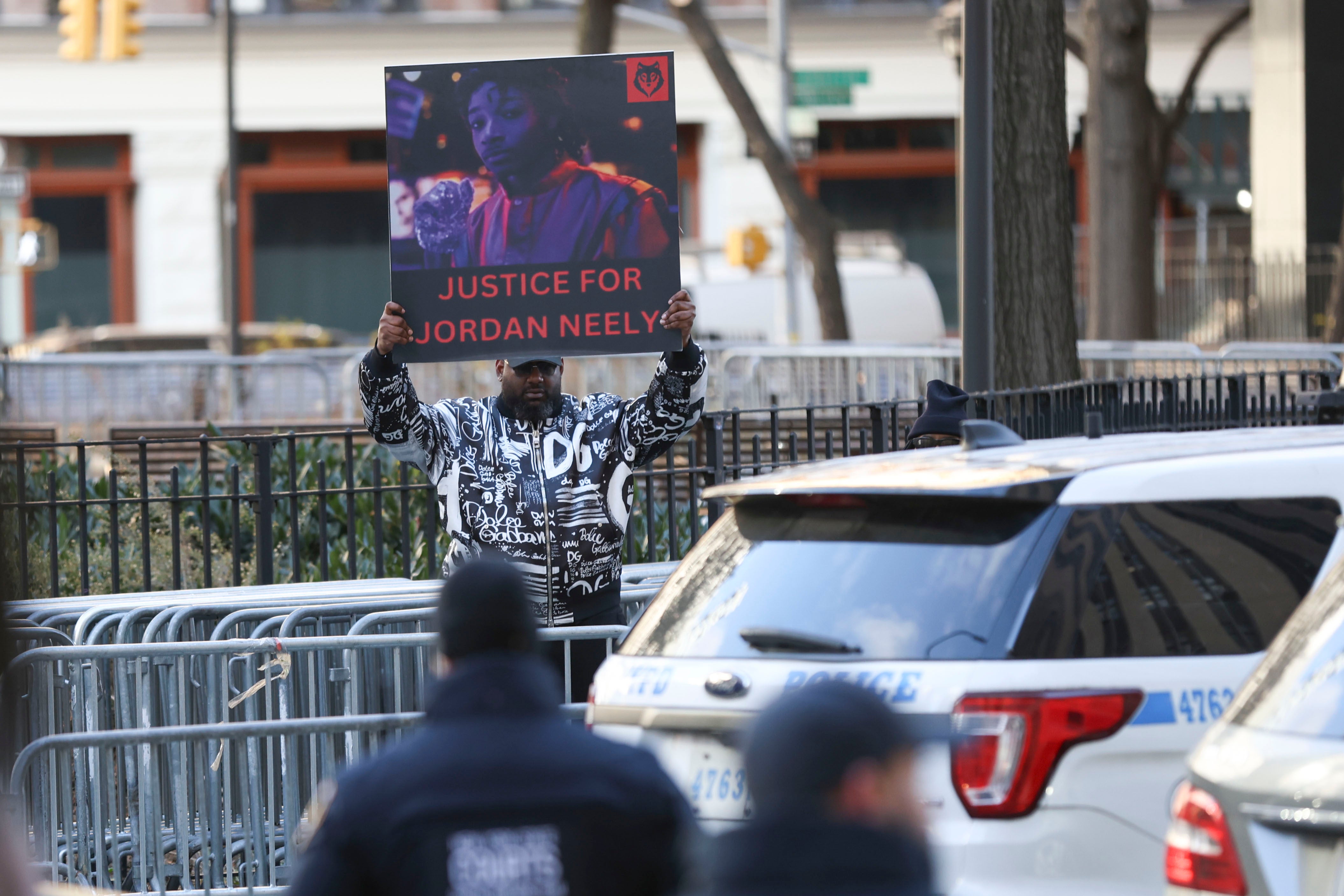A judge has dismissed the manslaughter charge against Daniel Penny over the death of a homeless man on a New York City subway after jurors deadlocked twice in one day.
Penny faced a charge of manslaughter in addition to criminally negligent homicide in the death of Jordan Neely, who Penny held in a chokehold for about six minutes on a New York City subway in 2023.
Earlier Friday the judge urged jurors to keep deliberating and read them an Allen charge — an instruction urging them to make every possible effort to reach a verdict.
Criminally negligent homicide carries punishments ranging from probation to up to four years in prison.
Prosecutor Dafna Yoran remarked that “it would be a crazy result to have a hung jury” just because they can’t get to the second count.
Penny’s lawyers say he was protecting himself and other subway riders from a volatile, mentally-ill man who was making alarming remarks and gestures. Prosecutors say Penny reacted far too forcefully to someone he perceived as a peril, not a person.
On May 1, 2023, Penny, a former member of the Marine Corps, put Neely in a chokehold for nearly six minutes, after Neely boarded a Manhattan subway train and began shouting aggressively at passengers.
Witnesses described Neely yelling to the subway passengers that he didn’t have food and water and didn’t care if he went to back to jail.

Penny, as well as some of his fellow passengers, claimed Neely also said he was willing to kill.
Prosecutors argued in the criminal trial, which began in October, that Penny’s initial attempt to defend his fellow passengers was understandable and “even laudable,” but that the architecture student went too far and used lethal force unnecessarily.
They said he continued to hold Neely after some passengers exited the train and Neely stopped moving for nearly a minute.
“You obviously cannot kill someone because they are crazy and ranting and looking menacing, no matter what it is that they are saying,” Yoran told jurors during closing arguments on Monday.
The defense, meanwhile, has argued that other factors could explain Neely’s death, like the man’s use of synthetic marijuana, his schizophrenia, and his genetic predisposition to sickle cell ailments.
They framed Penny’s intervention as a heroic attempt to save his fellow passengers.
“Daniel Penny was the one who moved to protect them,” defense attorney Steven Raiser said during closing arguments.
“Why? Because he had something the others didn’t. Something unique to him.”
The Associated Press contributed reporting.







